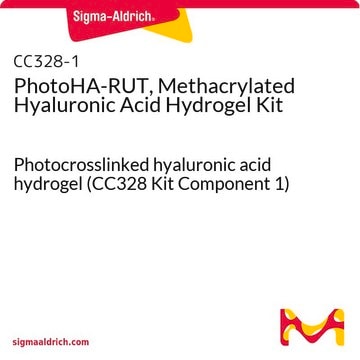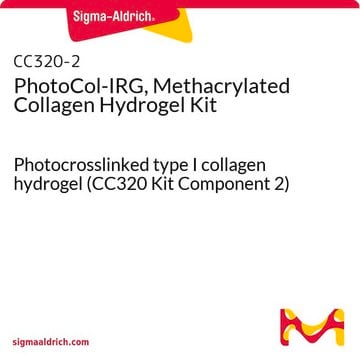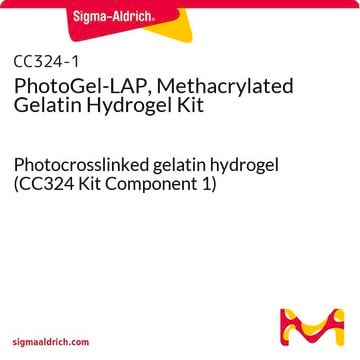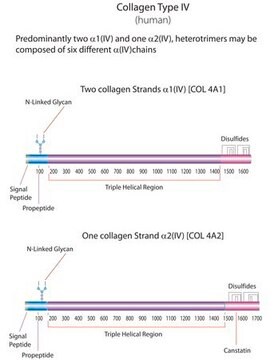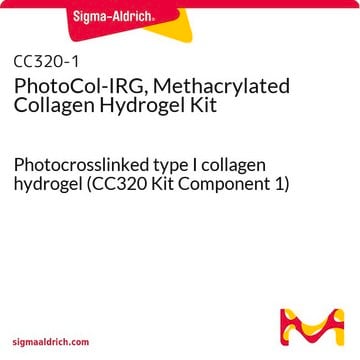CC322-2
PhotoCol-RUT, Methacrylated Collagen Hydrogel Kit
Photocrosslinked type I collagen hydrogel (CC322 Kit Component 2)
About This Item
Productos recomendados
application(s)
cell analysis
General description
Application
Packaging
Components
Note: The complete PhotoCol-RUT, Methacrylated Collagen Hydrogel Kit (CC322) consists of CC322-1 and CC322-2 sold seperately.
Quality
Disclaimer
Storage Class
10 - Combustible liquids
Certificados de análisis (COA)
Busque Certificados de análisis (COA) introduciendo el número de lote del producto. Los números de lote se encuentran en la etiqueta del producto después de las palabras «Lot» o «Batch»
¿Ya tiene este producto?
Encuentre la documentación para los productos que ha comprado recientemente en la Biblioteca de documentos.
Artículos
Methacrylated hydrogels enable 3D cell culture scaffolds and bioprinting using light crosslinking.
Methacrylated hydrogels enable 3D cell culture scaffolds and bioprinting using light crosslinking.
Methacrylated hydrogels enable 3D cell culture scaffolds and bioprinting using light crosslinking.
Methacrylated hydrogels enable 3D cell culture scaffolds and bioprinting using light crosslinking.
Nuestro equipo de científicos tiene experiencia en todas las áreas de investigación: Ciencias de la vida, Ciencia de los materiales, Síntesis química, Cromatografía, Analítica y muchas otras.
Póngase en contacto con el Servicio técnico